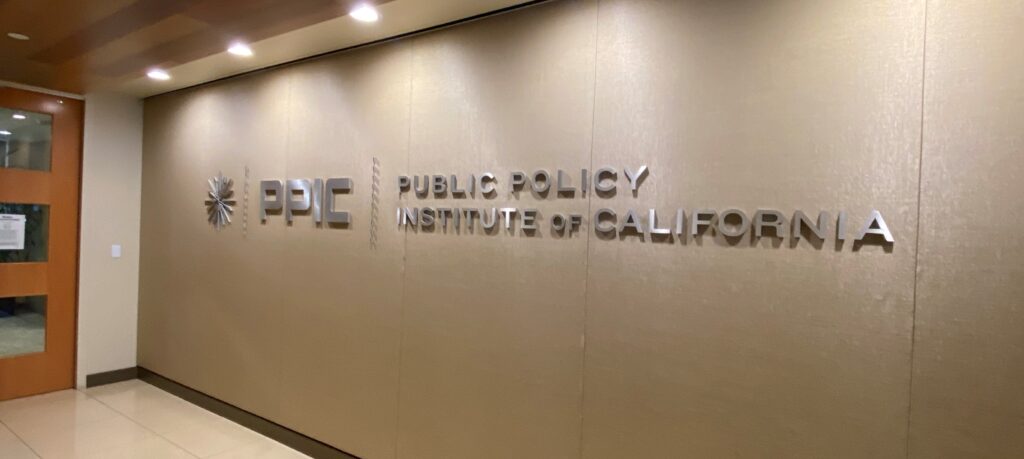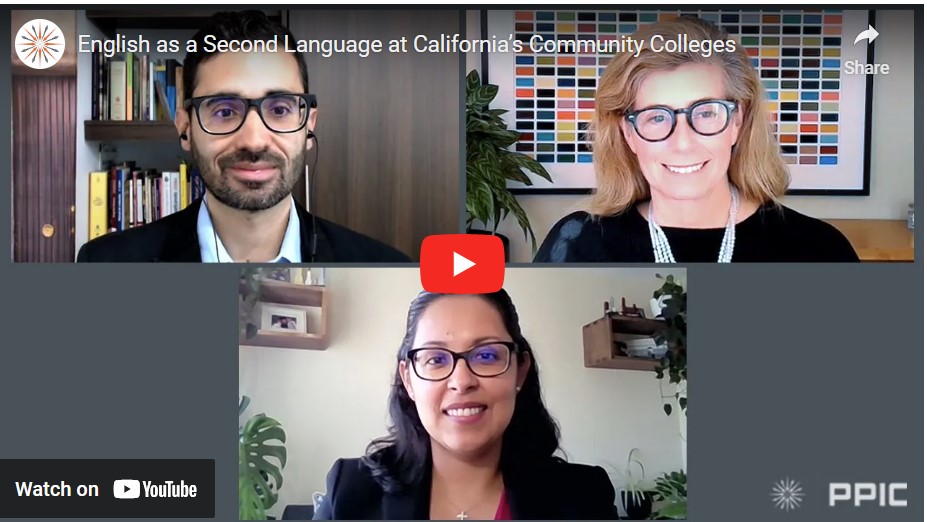We visited the Public Policy Institute of California (PPIC) on the third day of the trip. As a non-profit, non-partisan, PPIC focuses on California-specific issues and provides objective empirical inquiries.

Dr. Olga Rodriguez at PPIC is the host for our meeting. As a senior research fellow, Dr. Rodriguez serves as the director of its Higher Education Center. She is also an expert in various higher education topics, including dual enrollment, transfer, and college affordability.
Dr. Rodriguez presented the findings of Assembly Bill 705 (AB705) as an example of how PPIC provided evidence and contributed to data-informed policy decisions in California. AB 705 is legislation that requires colleges to consider a student’s high school coursework and GPA as primary determining factors for placement.
What are PPIC’s findings of AB705?
Dr. Rodriguez’s team found that AB705 increases broad access to college-level transferable Math and English courses. As a result, the completion rate for transfer-level Math and English in one semester has increased for all students, especially for African American and Hispanic students.

Pushbacks and Moving Forward with Research
Dr. Rodriguez introduced the pushback AB705 after its establishment. Their team found out that some instructors, especially Math instructors, were not passionate about AB705. Some instructors believed AB705 is not sustainable as some students do need additional help, and some were reluctant or not confident in adapting to this new legislature. While research proved that remedial prerequisite courses are not a solution, PPIC works on finding more effective ways to support students.
After disaggregating institutional-level data on students’ completion rates, Dr. Rodriguez’s team identified a list of successful community colleges and interviewed them to gain more information on their new practices, and is working on further investigation.

check out this video with Dr. Olga Rodriguez (lower tile), director of PPIC’s Higher Education Center.
Besides the conversation about AB705, we also learned how PPIC picks research topics, their current research regarding dual enrollment and FAFSA completion rate, data access and collection, different channels PPIC utilized to inform policy as a nonpartisan think tank, and their collaboration with other partners. Thanks to Dr. Rodriguez’s expertise and willingness to share, this session is very informative.
–Yining Li, master’s student
